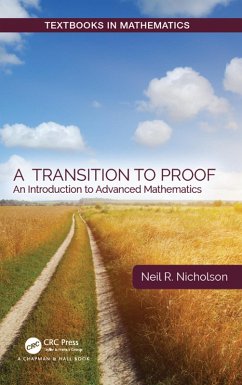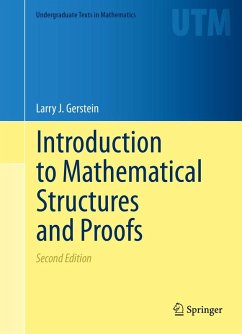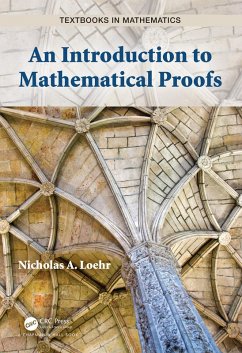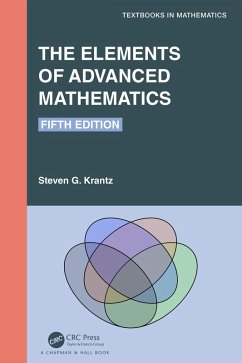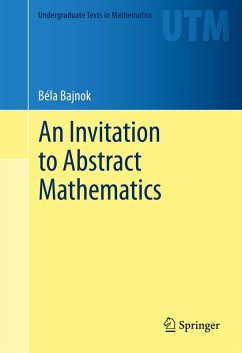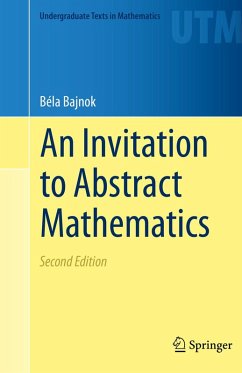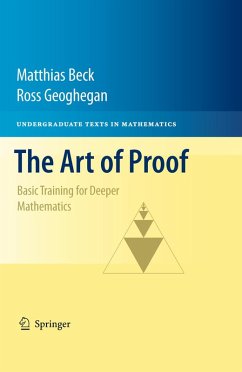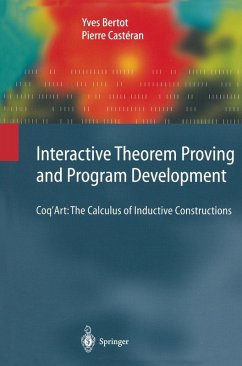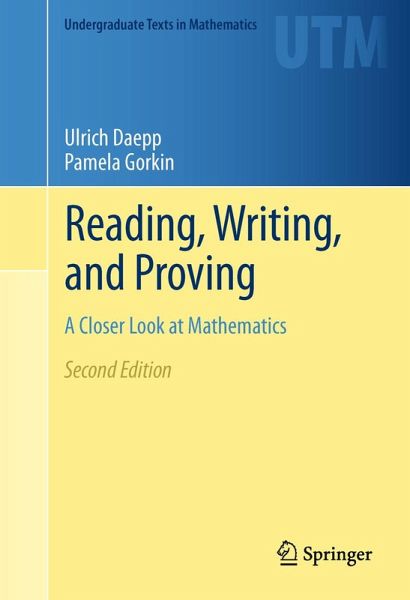
Reading, Writing, and Proving (eBook, PDF)
A Closer Look at Mathematics
Versandkostenfrei!
Sofort per Download lieferbar
46,95 €
inkl. MwSt.
Weitere Ausgaben:

PAYBACK Punkte
23 °P sammeln!
This book, which is based on Pólya's method of problem solving, aids students in their transition from calculus (or precalculus) to higher-level mathematics. The book begins by providing a great deal of guidance on how to approach definitions, examples, and theorems in mathematics and ends with suggested projects for independent study.Students will follow Pólya's four step approach: analyzing the problem, devising a plan to solve the problem, carrying out that plan, and then determining the implication of the result. In addition to the Pólya approach to proofs, this book places special emph...
This book, which is based on Pólya's method of problem solving, aids students in their transition from calculus (or precalculus) to higher-level mathematics. The book begins by providing a great deal of guidance on how to approach definitions, examples, and theorems in mathematics and ends with suggested projects for independent study.
Students will follow Pólya's four step approach: analyzing the problem, devising a plan to solve the problem, carrying out that plan, and then determining the implication of the result. In addition to the Pólya approach to proofs, this book places special emphasis on reading proofs carefully and writing them well. The authors have included a wide variety of problems, examples, illustrations and exercises, some with hints and solutions, designed specifically to improve the student's ability to read and write proofs.
Historical connections are made throughout the text, and students are encouraged to use the rather extensivebibliography to begin making connections of their own. While standard texts in this area prepare students for future courses in algebra, this book also includes chapters on sequences, convergence, and metric spaces for those wanting to bridge the gap between the standard course in calculus and one in analysis.
Students will follow Pólya's four step approach: analyzing the problem, devising a plan to solve the problem, carrying out that plan, and then determining the implication of the result. In addition to the Pólya approach to proofs, this book places special emphasis on reading proofs carefully and writing them well. The authors have included a wide variety of problems, examples, illustrations and exercises, some with hints and solutions, designed specifically to improve the student's ability to read and write proofs.
Historical connections are made throughout the text, and students are encouraged to use the rather extensivebibliography to begin making connections of their own. While standard texts in this area prepare students for future courses in algebra, this book also includes chapters on sequences, convergence, and metric spaces for those wanting to bridge the gap between the standard course in calculus and one in analysis.
Dieser Download kann aus rechtlichen Gründen nur mit Rechnungsadresse in A, B, BG, CY, CZ, D, DK, EW, E, FIN, F, GR, HR, H, IRL, I, LT, L, LR, M, NL, PL, P, R, S, SLO, SK ausgeliefert werden.




